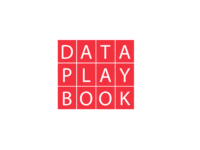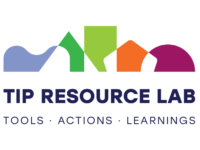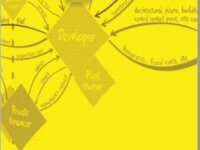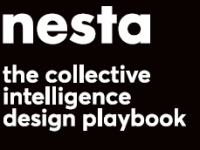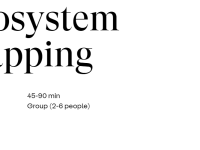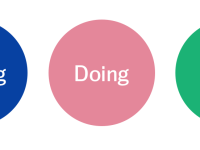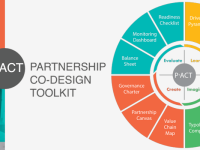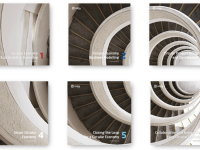Toolkit Navigator
A compendium of toolkits for public sector innovation and transformation, curated by OPSI and our partners around the world

This Playbook compiles over 120 short exercises, games, scenarios, checklists and handouts to help individuals and teams discuss, learn, and share all aspects of the data lifecycle. The Playbook is divided into 10 modules that can be modified to suit individual needs and composed of facilitator tips to help strengthen data capacity. The resource is modular and includes specific exercises and example workshop templates. This content is also available in Arabic.
The Transformative Innovation Policy (TIP) Resource Lab contains over 250 resources (such as tools, interactive canvases and narrative guides) structured across five components:
1. Systems, anticipation and transformative theory of change
2. Experimentation in policies and programmes
3. Evaluation using transformative outcomes
4. Capabilities - personal, organisation, and facilitating contestation
5. Knowledge communities and infrastructures
The resource includes lessons for the design and…
Translating global sustainable development goals into concrete actions for systemic change remains one of the greatest challenges of our times, requiring changes in the structures of the sociotechnical systems that define our world. Value Network Mapping helps in getting a grip on the structure of these sub-systems and enables users to identify together intervention points that make sustainability transitions happen. The method helps users co-create such changes, while balancing individual needs…
The Collective Intelligence Design Playbook, created by Nesta, offers a wide range of tools, tactics and methods to engage collective intelligence to solve societal challenges. Through practical instructions and case studies, the Playbook presents ways to orchestrate diverse groups of people, data and technology.
It is designed to be applied by teams or groups and features an introduction to help users understand the scope and potential of collective intelligence, practical guidance to sustain…
The Danish Design Center created the Ecosystem Mapping tool to help users get an overview of their project stakeholders and potential participants and analyse the motivations, resources and capabilities, that will become valuable for the overall ecosystem.
Through its application, users can map all actors (partners, collaborators, contractors, external stakeholders, etc.) in a given ecosystem in order to accomplish its mission. The tool provides users with "Question Cards" to confirm identified…
This handbook introduces actionable knowledge on developing a Transformative Theory of Change by applying a portfolio approach to address a systems innovation perspective for projects and programmes. Tools, methods and lessons learned are based on working hand in hand with EIT Climate-KIC projects around a portfolio of knowledge services for sustainable systems transformation.
The step-by-step methodology supports practitioners to design, implement and evaluate projects aimed at achieving…
This toolkit offers a starting point and a framework for uncovering circular potentials and barriers and to potentially identify new circular business models. The tools in this toolkit focus specifically on mapping a company's circular potentials in the value chain it operates within. And it gives priority to understanding, framing and re-fining the value businesses create in the value chain, exploring the interaction with both customers, collaborators and influential stakeholders. The toolkit…
A living compilation of social innovation lab theory, templates, and tools to help address complex system problems and design a social innovation lab. This web-based resource includes sections Seeing, Doing, and Being, each with links to additional guidance, tools, and videos.
This toolkit is targeted towards impact entrepreneurs, intrapreneurs, partnership brokers and facilitators, and accelerators supporting impact entrepreneurs who are initiating value chain partnerships, partnerships where organizations seek to integrate existing or create new value chains. The Partnership Co-design Toolkit (P.ACT) includes four stages of co-design and 12 tools, each building on the previous, to bring partners closer, to developing a complete partnership model, and get ready to…
This is a collection of six workbooks containing tools and guides for transitioning towards a Circular Economy. The workbooks relate to the six focus areas:
1) Circular Economy Sustainability Screening
2) Circular Economy Business Modelling
3) Circular Product Design and Development
4) Smart Circular Economy
5) Closing the Loop for a Circular Economy and
6) Collaborating and Networking for a Circular Economy.
Each workbook contains an introduction to each Circular Economy topic followed by…

